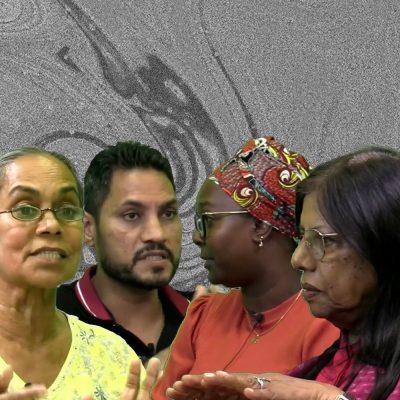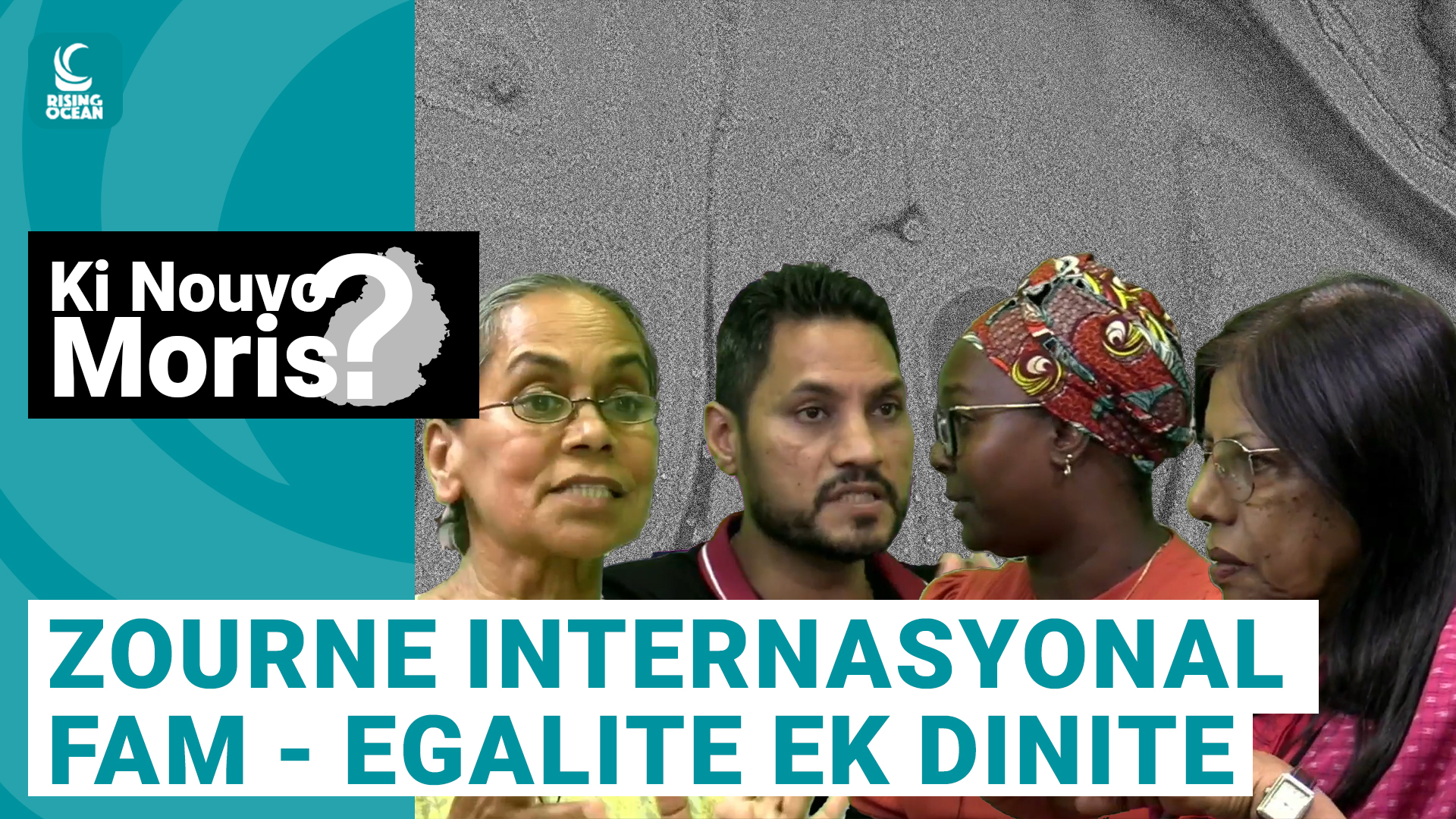The situation of women in Mauritius and abroad.
What is stopping women from progressing?
What model of society that must be established in order to move towards the emancipation of women?
What are the key measures to have more rights, equality and dignity for women?
Monday, March 8, marks International Women’s Day. Women are a symbol of strength and courage. The history of Mauritius bears witnesses to this with the different women who each in turn have contributed to the advancement of the country. Anna of Bengal, Anjalay Coopen and other women are the very symbol of resistance for Mauritius. To elaborate on this theme, the ki nouvo moris set had as guest 3 women, Veena Dholah, feminist and member of Rezistans ek Alternativ, Marie Michelle Jean-Pierre, a teacher, and Nalini Burn, a committed citizen. The debate was moderated by Ashvin Gudday.
The situation of women in Mauritius and abroad in 2024.
In Mauritius, as in many other countries, the situation of women seems to be deteriorating over the years. Although there have been several historic advances regarding rights such as voting rights and equality in the world of work, however, the battle is not yet won. Indeed, in recent decades, we have seen that the political agenda in many countries is unfavorable to women. Some political agendas, for example, aim to restrict the role of women as mothers and housewives. Veena Dholah points out that the situation of women in the Israel-Palestine conflict is truly catastrophic. This war has caused many deaths and the rate of women and infants dying is extremely high due to births done without medical assistance. It is true that the situation of women living in areas of poverty and war is really complicated because they lack medical and hygienic assistance. Every day, several infants are born in difficult conditions that jeopardize their health and that of their mothers. Without medical support and sterile places for childbirth, women are unfortunately prone to several life-threatening infections. A certain hygienic poverty is also to be deplored because most of them no longer have access to water and sanitary protection.
Marie Michelle says that women are doing a lot for the country. Indeed, many women contribute to the Mauritian economy thanks to their labor force. She confides that women are capable of many things because they are resilient and strong compared to what they have been taught.
“The problem is that the woman has been so demeaned that she thinks she can’t stand for herself. However, she is capable of being economically self-sufficient.”
What are the obstacles that prevent the woman from progressing?
The commission on the status of women has highlighted four big elements on which there is inequality, says Nalini Burn. The first inequality arises from the difference between paid and unpaid work performed by women. Statistics show that women work 3 hours more than men because they contribute more to household chores. Inequality comes in terms of money. Indeed, women are forced to work more for a lower salary than men. In addition, violence against women around the world is extremely high.
« It is not up to the victim to be singled out by society. For justice, the perpetrator must be held accountable. »
Inequality is also present in the political arena. The space allocated to women for decision-making in the public sphere is minimal compared to men. If there were no quota for women’s representation, the number of women in politics would be even lower than it is now, says Nalini Burn.
What model of society that must be established in order to move towards the emancipation of women?
First of all, the economic model in which we live is the main cause of regression of people’s rights and specially the regression of women’s rights. The current economy is pushing people towards the inability to own the land, the inability to have the means of subsistence, what we can call an extractive model of the economy. In Mauritius we have land appropriation. For the past few years, the real estate policy has been made in a way that prevents Mauritians from exploiting the land. Indeed, many plots of land are for sale at millions of rupees which means that Mauritians no longer have the ability to acquire land as it is sold at exorbitant prices to rich foreigners. Nalini Burn points out that it is women who are most affected by certain events.
« From Grand-Rivière-Sud-Est to Mahébourg, women no longer have access to the sea. Some of them used to collect shellfish to have an economic activity and food sufficiency and this is no longer possible because of the constructions to prevent erosion.”
As a result, we need to have an economic model that is not based on a capitalistic extractive system because this is the very reason for the major climate and societal problems.
What are the key measures to have more rights, equality and dignity for women?
To have more recourse against these injustices, we need to have mechanisms in the constitution that will help put the brakes on these inequalities. The Mauritian constitution is deficient in many areas. It is therefore crucial to recognize economic, social and cultural rights so that every person who feels deprived of a right in society can apply to the court for redress of the harms. Other measures are poverty eradication and the financing of equality between men and women.
Watch the debate here:


